According to a survey conducted by the University of Oxford, which studied the dietary habits of more than 110,000 people in the UK for about nine years, for every five percent increase in free sugar intake, the risk of ischemic heart disease and stroke increased by 6 percent and 10 percent respectively.
Why does eating sugar increase cardiovascular risk? Ou said sugar generates chronic inflammation in the body. When blood vessels become inflamed, cholesterol will be increased to repair the inflamed vessels. Excessive cholesterol deposited in the blood vessels can become plaque and blockages, resulting in elevated blood pressure, stroke, and other cardiovascular diseases.
In addition to causing cardiovascular disease, Ou cited a study in Nature’s Scientific Reports, which found that high blood sugar increases the risk of dementia in Alzheimer’s disease.
One of the causes of Alzheimer’s disease is the accumulation of beta-amyloid proteins around nerve cells, causing the nerve fibers to twist into a mass and gradually die. Macrophage migration inhibitory factor (MIF) is the brain’s natural scavenging mechanism that cleans up abnormal proteins in the brain. However, when the body has too much sugar, the effect of MIF is inhibited, resulting in the risk of Alzheimer’s disease.
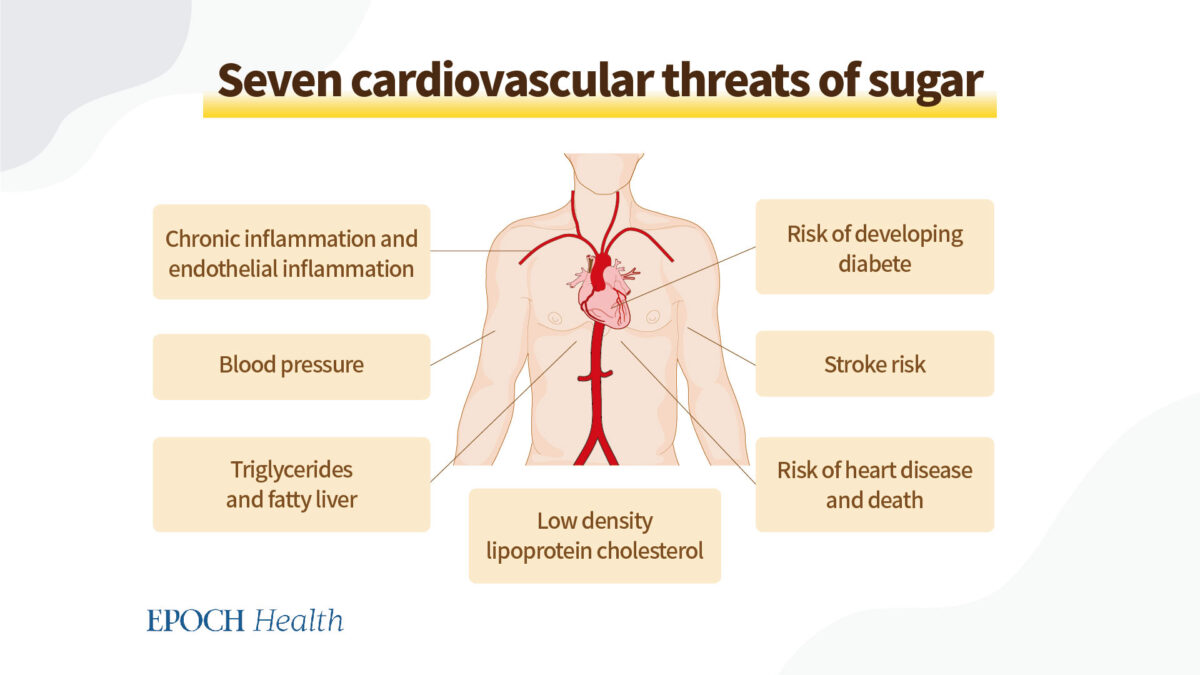
How Should I Eat Sugar?
Studies have found that sugar causes harm to the body—does it then follow that people who eat sugar are unhealthy? According to Ou, sugar is an important energy source for the body. The focus is on what kind of sugar is eaten: refined sugar or natural healthy sugar.
Residents of Okinawa, Japan have some of the longest life expectancies in the world. Their main staple is sweet potatoes—which are rich in sugar. Although sweet potatoes are high in sugar, they are also rich in dietary fiber, which, according to an Oxford University study lowers the risk of cardiovascular disease.

To maintain a healthy diet, refined sugars should be reduced. Foods rich in refined sugars include ice cream, cakes, chocolates, candies, canned fruits, fruit juices, condensed milk, jams, sugary drinks, and even bread and noodles with fillings, as well as brown sugar, white sugar, and rock sugar. All of these foods can cause significant fluctuations in blood sugar.
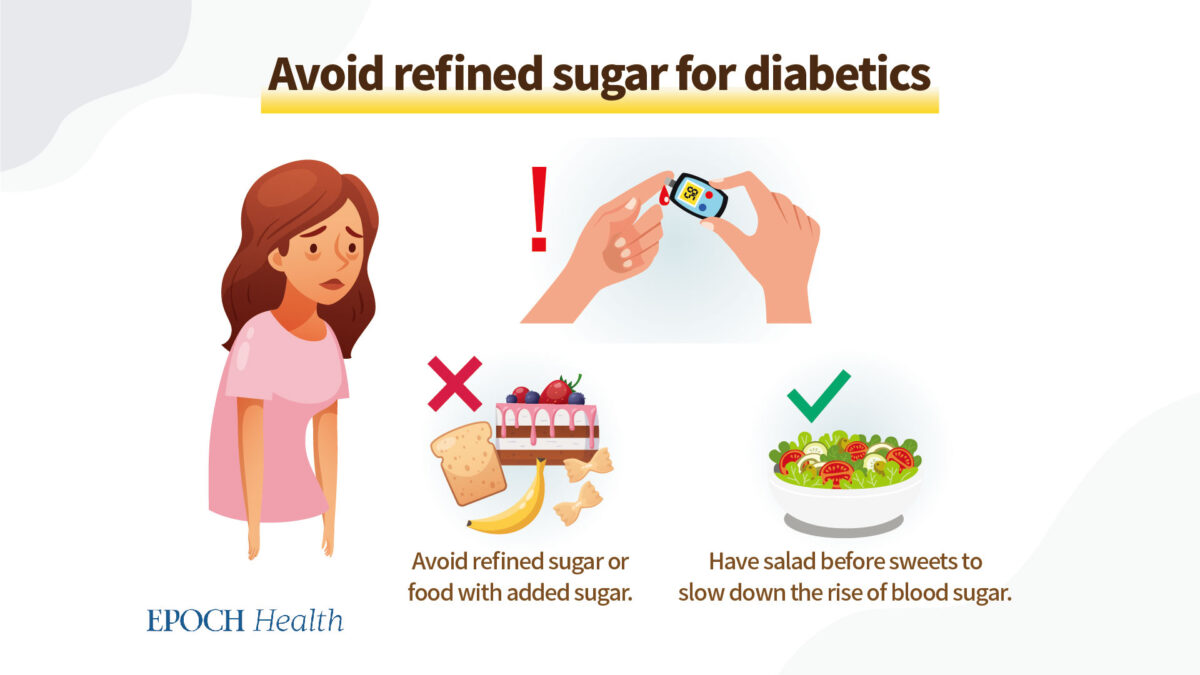
Ou also listed some foods that are considered to be healthy but have high sugar content and should be consumed with care. These include:
- Nutritional supplements made into gummies.
- Probiotic powders and drinks, and other children’s “health foods.”
- Dairy products with added sugar, such as cheese and yogurt.
- Dried fruit.
- Honey nuts.
- Oatmeal bars.
- Cereals such as cornflakes.
- Sweetened marinated foods.
- Processed meat products such as jerky, crispy jerky, and pork floss.
- Fruit juice, fruit vinegar, sports drinks, and tea drinks.
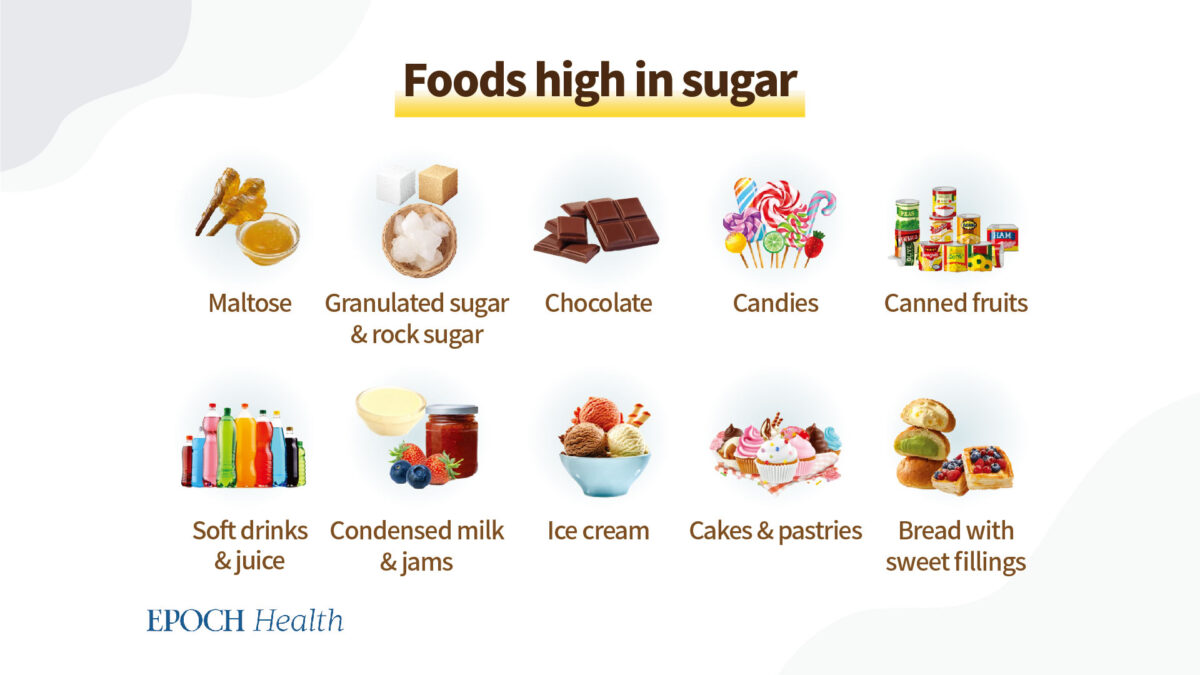
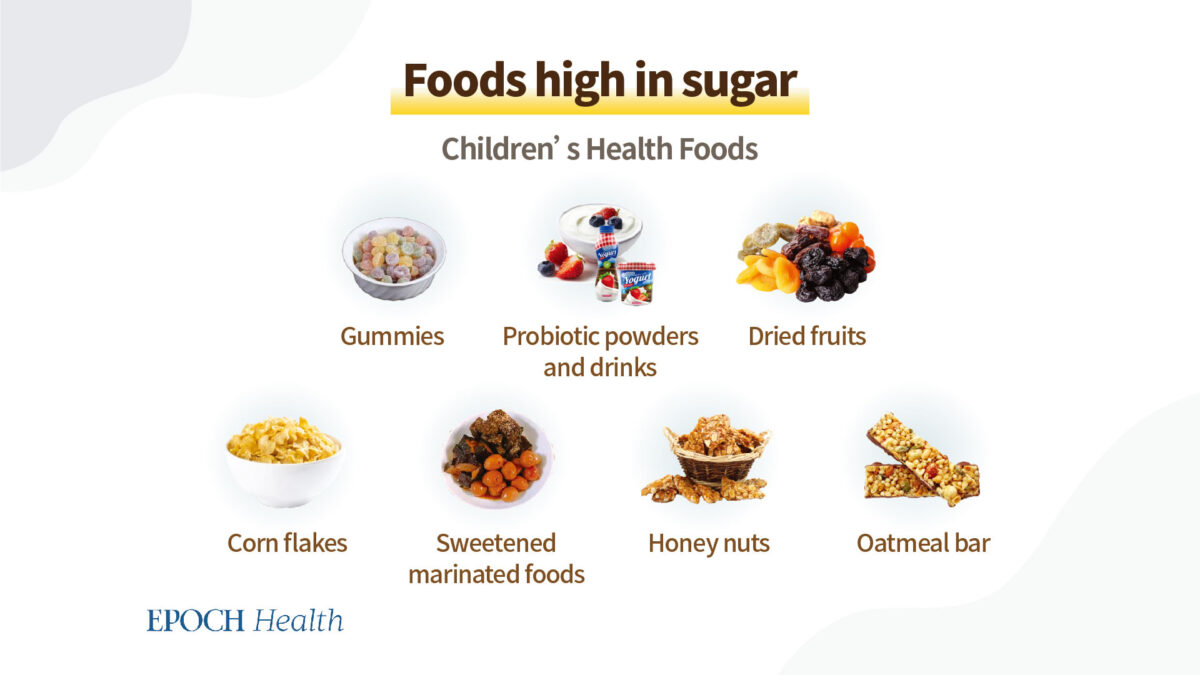
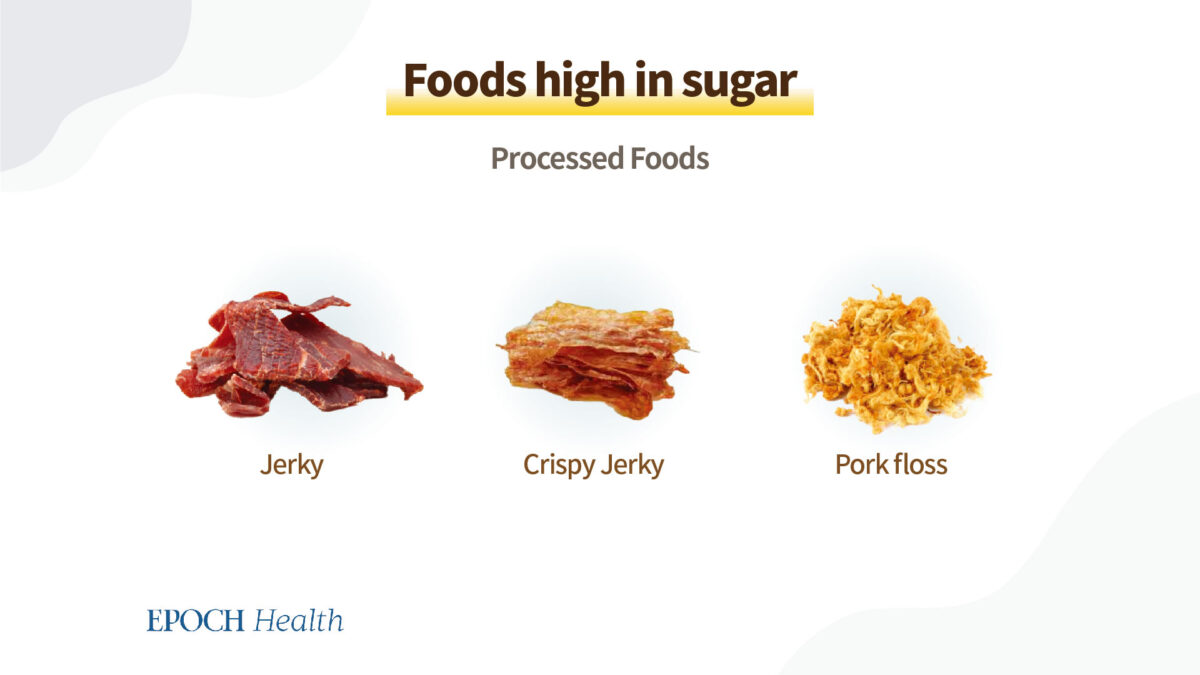
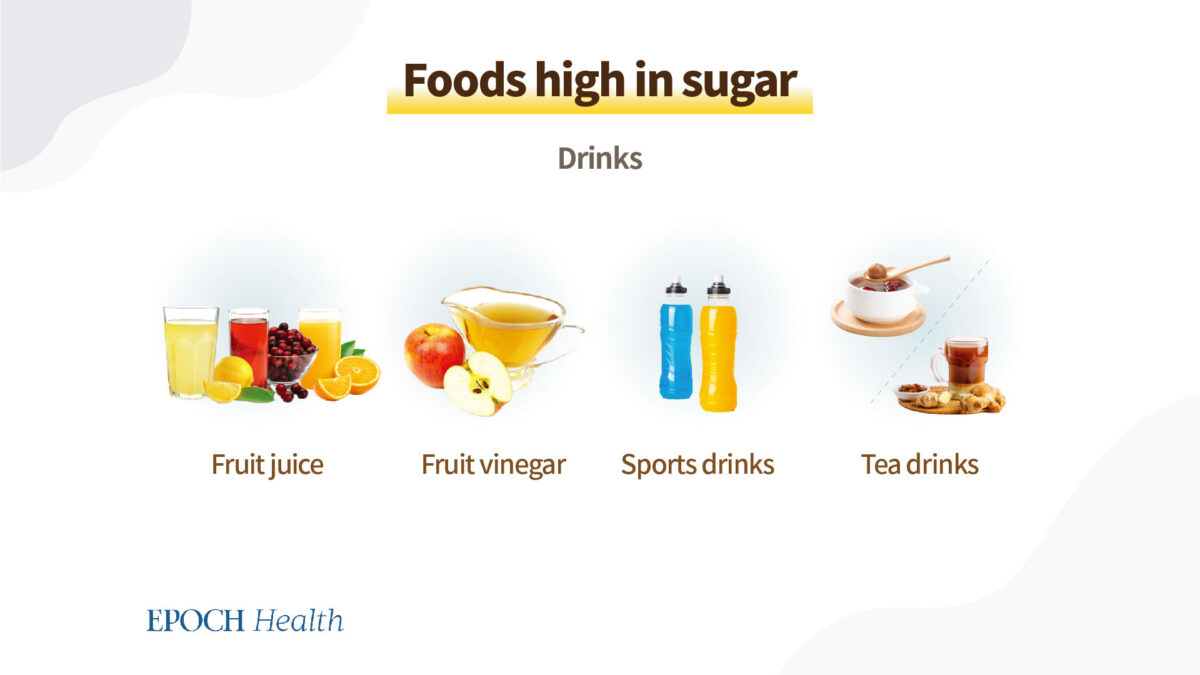
How can we reduce our intake of sugar? Ou offers the following eight ways to reduce sugar.
1. Don’t count calories: Ou believes that eating is a pleasurable task and that calculating the calories of each bite of food will increase the psychological burden. Reducing the portion size instead of counting calories is recommended, such as changing a bowl of rice to half a bowl.
2. Eat more vegetables: Vegetables are carbohydrates, and some are also starch-like food. You can eat more vegetables to increase your sense of satiety.
3. Eat enough protein: Many worry that eating meat increases cholesterol. However, protein-based foods do not increase the risk of cholesterol. Consuming too much sugar through the body’s conversion will increase blood cholesterol.
4. Soup, vegetables, meat, and rice: The recommended order of meals is soup, vegetables, meat, rice, and starch food at the end. The order can reduce the amount of food consumption.
5. Read nutrition labels: Food package nutrition labels list the amount of sugars per serving. Choose packaged foods with low sugar.
6. Drink sufficient water: Water is important for body metabolism, sufficient water can help metabolize sugar.
7. Exercise: The body prioritizes sugar as calories when exercising. Using spare time to do some exercise can burn the body’s excess calories.
8. Eat low glycemic fruits: Ou said that the sweet taste of fruit does not necessarily equate to being high in sugar, and to focus on choosing fruit that has a low glycemic index. For example, kiwis, guavas, oranges, bananas, and small tomatoes are low-glycemic fruits that can be eaten in 2-3 servings daily. A low glycemic index means that blood sugar will rise slowly.
Are These Sugars Healthy?
What about sugar substitutes? Ou pointed out that a current study has found that sugar substitutes can change intestinal bacteria, causing insulin resistance and increasing the risk of diabetes. He said that the sugar substitute added to Diet Coke is believed to increase the E. coli and E. faecalis in the intestine and promote the growth of bad bacteria.
Is it healthier to replace white sugar with brown sugar? Brown sugar contains minerals and has a higher nutritional value than other sugars, but the sugar content is not lower. Current studies show that sweeteners extracted from natural plants such as stevia and erythritol are not harmful to the body.
